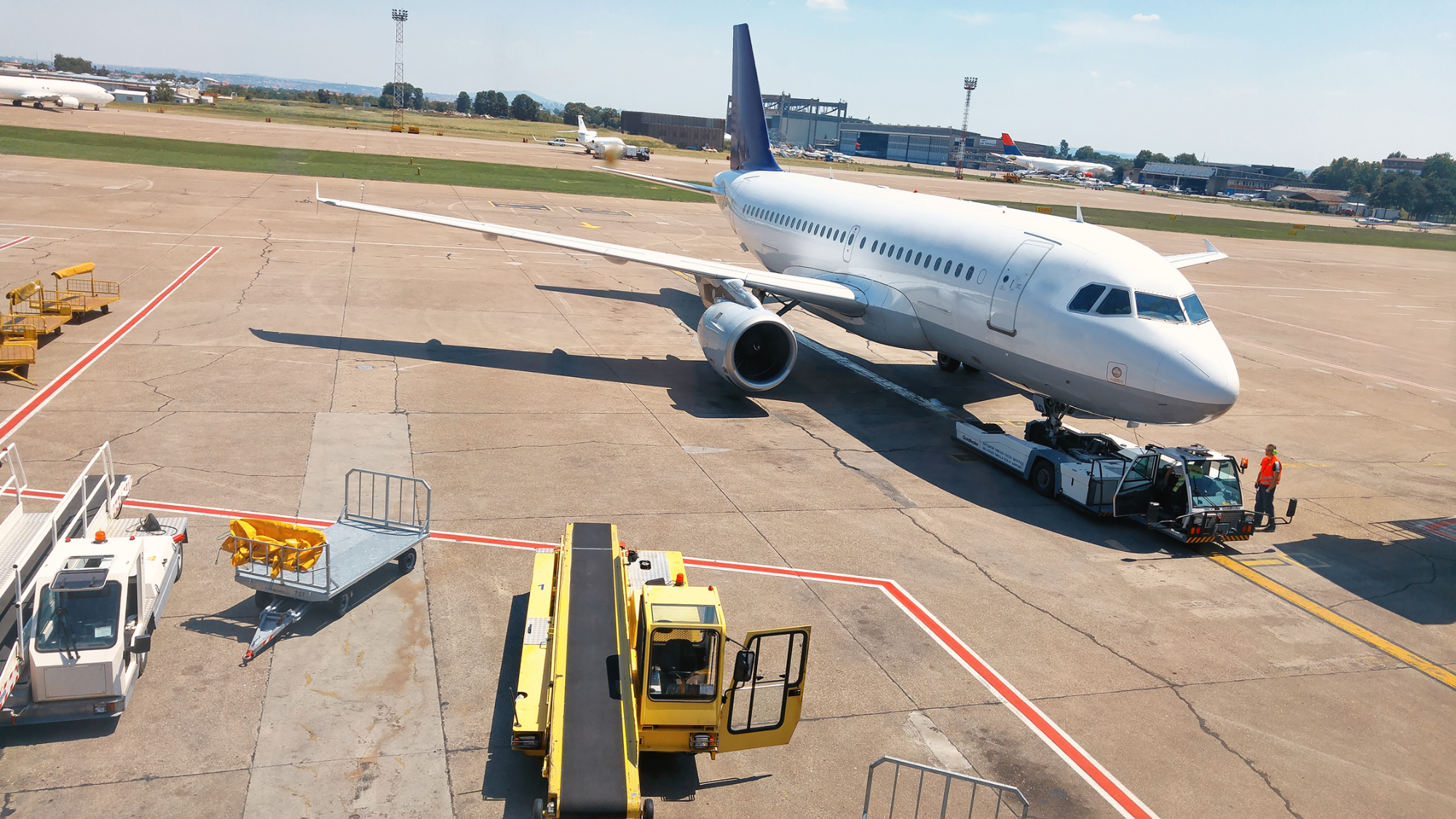Geeksme.com 2023 - Copyright © All rights reserved.
Airfreight - Import & Export Services
Efficient, Reliable, and Swift Airfreight Solutions for Seamless Import & Export Operations
Your Reliable Airfreight Partner for Import & Export Services. Streamlined operations, swift delivery, and unmatched efficiency for seamless logistics. Trust us for all your airfreight needs.
Unleashing the Power of Airfreight: Flexible, Secure, and Global Logistics Success

Airfreight shipping is a vital solution for businesses seeking flexibility and security in transportation. With various delivery choices and extensive airline networks, companies can tailor their shipping strategies to meet specific needs, responding rapidly to changing demands and market opportunities. Airfreight’s commitment to safety, controlled cargo environments, and compliance with international standards further enhance its appeal, making it a preferred option for businesses looking to optimize logistics, ensure timely delivery, and thrive in the global marketplace.
Airfreight shipping prioritizes the safety of goods throughout the transportation process. Airlines and airports implement rigorous security protocols, including comprehensive screening and surveillance systems. These measures minimize the risk of theft, damage, or unauthorized access to cargo. By ensuring a secure passage from origin to destination, air freight shipping instills confidence in businesses and protects the integrity of their shipments. The flexibility in delivery options enables enterprises to adapt to changing demands and seize market opportunities. Meanwhile, the commitment to safety, controlled environments, and compliance with international standards safeguard the integrity and security of cargo. By embracing air freight shipping, businesses can optimize logistics operations, meet customer expectations, and thrive in the dynamic global marketplace.
The Journey of Air Freight Transportation: A Comprehensive Guide

Airfreight transportation plays a pivotal role in global trade, enabling the efficient movement of goods across vast distances. Businesses involved in international trade need to grasp the process of air freight transportation. This article will explore the critical aspects of the air freight transportation process, shedding light on its various stages and highlighting its significance in modern logistics.
The air freight transportation process begins with the booking of cargo space with an airline or freight forwarder. Accurate documentation, such as commercial invoices, packing lists, and customs declarations, must be prepared to comply with international regulations. These documents facilitate smooth customs clearance and ensure the shipment meets all legal requirements.
Proper packaging is crucial to protect goods during air transportation. The packaging must be sturdy, secure, and capable of withstanding handling and potential turbulence. Additionally, packages should be clearly labeled with pertinent information, including the consignor’s and consignee’s details, the nature of the goods, and any handling instructions. Adequate labeling ensures efficient handling and helps prevent errors or delays during the transportation process.
Once the cargo arrives at the airport, it undergoes a series of acceptance and handling procedures. Airline personnel verify the accuracy of documentation and conduct inspections to ensure compliance with safety regulations. The cargo is sorted and categorized based on destination, weight, and size. Specialized handling equipment, such as forklifts or conveyor systems, is used to load the cargo onto the aircraft, taking utmost care to prevent damage.
Customs clearance is a critical stage in air freight transportation. The shipment goes through customs inspections, where authorities verify the accuracy of the declared information, assess applicable duties and taxes, and ensure compliance with import/export regulations. Proper documentation and adherence to customs procedures are crucial to avoid delays or penalties. Customs brokers or freight forwarders often assist businesses in navigating the complex customs clearance process.
Once the cargo has cleared customs, it is loaded onto the aircraft for transportation. The plane, carefully chosen based on the size and nature of the shipment, takes off and follows a predetermined route to the destination airport. During the flight, the cargo is secured to prevent shifting or damage. Airlines prioritize the safety and security of the shipment, employing measures such as temperature-controlled compartments for perishable goods and specialized handling for fragile or hazardous items.
Upon arrival at the destination airport, the cargo is unloaded from the aircraft using appropriate handling equipment. It undergoes an inspection to ensure it has arrived in the expected condition and is then transferred to the designated warehouse or customs area for further processing. Proper documentation and coordination are crucial to expedite unloading and minimize potential disruptions.
Once the cargo has been cleared at the destination airport, it is transported to its final destination. This last-mile delivery may involve various modes of transport, such as trucks or local couriers, depending on the nature and size of the cargo. Efficient coordination between all parties ensures the seamless flow of goods from the airport to the end recipient.
Understanding the air freight transportation process is vital for businesses engaged in international trade. From booking and documentation to customs clearance and last-mile delivery, each stage plays a significant role in ensuring the timely and secure movement of goods. By familiarizing themselves with the intricacies of air freight transportation, businesses can optimize their supply chain, streamline logistics operations, and enhance customer satisfaction in an increasingly interconnected global marketplace.
Exploring the Benefits of Air Freight Shipping

Airfreight shipping has become an integral part of global trade and logistics, revolutionizing how goods are transported worldwide. With its unparalleled speed and efficiency, air freight offers numerous advantages over other modes of transportation. This article will explore the benefits of air freight shipping and why it has become the preferred choice for businesses worldwide.
One of the most significant advantages of air freight shipping is its unmatched speed and efficiency. Airplanes can cover vast distances in hours, allowing goods to reach their destination much faster than other modes of transport. This rapid transit time is particularly beneficial for time-sensitive shipments, perishable goods, or urgent deliveries. Air freight reduces lead times, ensures faster inventory turnover, and enables businesses to respond swiftly to customer demands.
Air freight offers unparalleled global connectivity, making it the ideal choice for businesses involved in international trade. Major airports worldwide are interconnected through a vast network of airlines, enabling seamless transportation of goods to virtually any destination. Regardless of the geographical location, air freight shipping allows businesses to reach customers and markets across the globe. This global reach opens up tremendous business opportunities to expand operations and tap into new markets.
Air freight shipping is known for its high level of reliability and security. Airlines adhere to rigorous schedules and operate with minimal disruptions, ensuring that shipments arrive on time and in good condition. Additionally, airports have robust security measures to safeguard cargo, including sophisticated screening systems and strict adherence to customs regulations. The controlled and monitored environment of air freight shipping reduces the risk of theft, damage, or loss of goods, providing peace of mind to businesses and their customers.

The speed of air freight shipping significantly reduces inventory holding costs for businesses. With shorter transit times, companies can maintain lower inventory levels while meeting customer demands. This helps to free up capital that would otherwise be tied up in inventory and reduces the risk of obsolescence. By adopting air freight as a shipping option, businesses can achieve leaner supply chain management, optimize inventory, and improve cash flow.
Air freight shipping offers a high degree of flexibility and versatility. Airlines operate frequent flights to various destinations, providing businesses with multiple options for shipping their goods. Additionally, air freight is suitable for a wide range of products, including perishable items, high-value goods, and time-sensitive shipments. Specialized cargo facilities, such as refrigerated storage and handling facilities, are available at airports to cater to the specific requirements of different types of goods. This flexibility allows businesses to customize their shipping strategies and meet the unique needs of their products and customers.
Airfreight shipping provides businesses with many advantages that contribute to improved efficiency, faster delivery times, and enhanced customer satisfaction. The speed, global reach, reliability, security, reduced inventory holding costs, and flexibility offered by air freight make it an indispensable part of modern supply chains. As international trade continues to grow, air freight shipping will play an increasingly crucial role in connecting businesses and facilitating the seamless movement of goods across borders.
Related Content
